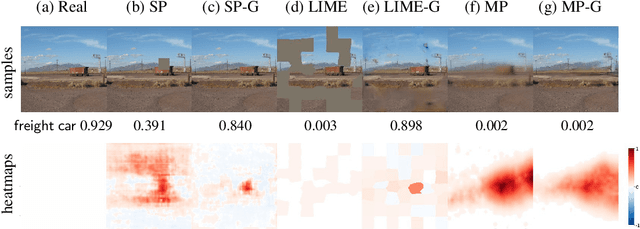Removing input features via a generative model to explain their attributions to classifier's decisions
Paper and Code
Oct 09, 2019



Interpretability methods often measure the contribution of an input feature to an image classifier's decisions by heuristically removing it via e.g. blurring, adding noise, or graying out, which often produce unrealistic, out-of-samples. Instead, we propose to integrate a generative inpainter into three representative attribution methods to remove an input feature. Compared to the original counterparts, our methods (1) generate more plausible counterfactual samples under the true data generating process; (2) are more robust to hyperparameter settings; and (3) localize objects more accurately. Our findings were consistent across both ImageNet and Places365 datasets and two different pairs of classifiers and inpainters.
* Preprint. Submission under review
View paper on
 OpenReview
OpenReview
 Add to Chrome
Add to Chrome Add to Firefox
Add to Firefox Add to Edge
Add to Edge